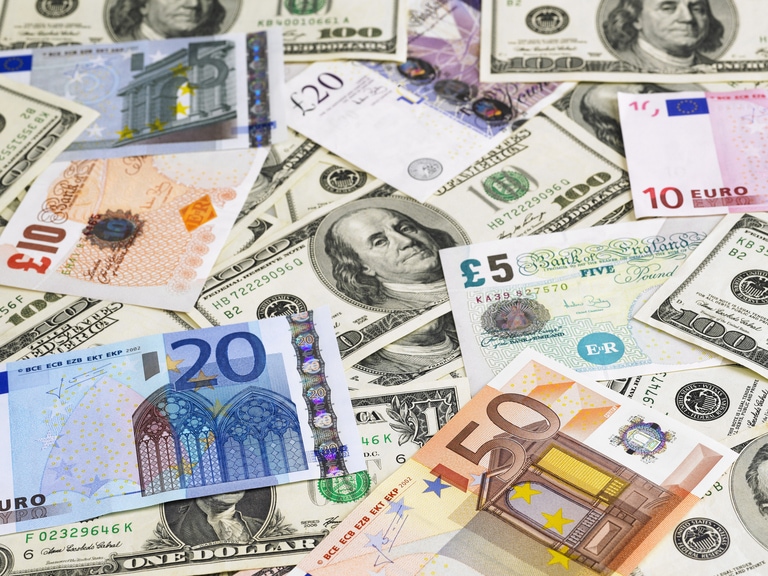Asia markets are set to open lower following a negative close in US stocks overnight. US Federal Reserve governor Lael Brainard reiterated the urgency to “take stronger action” on tightening monetary policy as “inflation is too high”. She also added that the balance sheet reduction could start as soon as May. Risk-off trades prevailed as investors await the March Fed meeting minutes on Thursday.
Investment sentiment was also hurt by the US Treasury’s blockage of dollar-dominated Russian debts payment, which could cause the first Russian sovereign debt default in decades.
SPI futures are pointing to a lower open in the ASX. The bank sector may suffer but mining stocks could continue to benefit from the expanding Russian sanctions.
The NZX 50 was down 0.3% in the first hour's trading. Air New Zealand’s rights offer will open to shareholders today until 26 April. The demand will determine the ongoing share price, which was at NZ91c at the open today.
US and EU stocks
The Dow Jones Industrial Average fell 0.8%, the S&P 500 was down 1.26%, and the Nasdaq declined 2.26%.
The broader markets closed in a red sea, with growth stocks leading losses. Consumer discretionary and technology sectors tumbled on Brainard's comment, both down more than 2%. All the mega-cap tech companies' stocks fell, with Apple down 1.89%, Amazon falling 2.52%, and Microsoft slipping 1.32%. Twitter shares extended gains, up 2% on news that Elon Musk will join the board of directors one day after he bought 9.2% of the company. Tesla Motors sank 4.73%.
In the cyclical stocks, the bank sector fell as Russian debts default resurfaces amid new sanctions. Citigroup, with the biggest exposure to the Russian debts, slid 2.3%. Energy also finished lower on dipping oil prices.
The defensive sectors, including consumer staples, healthcare, and utilities, held up on risk-off sentiment, up 0.07%, 0.18%, and 0.67%.
Europe's major indices were also down. The Stoxx 50 fell 0.84%, the DAX slid 0.65%, and the CAC 40 declined 1.28%. The FTSE 100 was up 0.73%.
Treasuries
Both US and Australian government bond yields spiked on central banks’ hawkish remarks. The 10-year US Treasury yield jumped to 2.56%, and the 2-year Treasury yield was at 2.52%, back to the highest level since May 2019.
Australia's 5-year bond yields surged to 2.80%, a new high since November 2014. The RBA kept the cash rate unchanged but gave forward guidance to rate hikes on Tuesday.
Commodities
Oil markets suffered from a strengthening USD despite a possible embargo on Russia’s oil supply under the new sanctions. Traders also keep one eye on the progress of the Iran nuclear negotiation, which was paused due to disagreements between parties.
WTI and Brent oil futures both fell more than US$2, to US$101.19 per barrel and US$105 66 per barrel respectively.
NYMEX gold futures also dipped because of a strong dollar and spiking bond yields, down US$12 to US$1,922 per ounce.
Currencies
The Eurodollar continues to suffer from the ongoing geopolitical issues weakened further against the USD, to test the pivotal support at 1.09. The Australian dollar was extremely strong after the RBA became more hawkish. The AUD/USD jumped almost 1 cent to 0.7650 before cutting gains to closed at 0.7576 in the session. NZD and CAD also hold well, while the other currencies were all softened against the USD.
Cryptocurrencies
Cryptocurrency markets fell on Tuesday, but the leading cryptocurrencies are still on course for bottom reversals. Bitcoin and ethereum rose 24% and 36% since mid-March, to just under US$46,000 and US$3,445 respectively. The two major digital coins almost recovered year-to-date losses.






